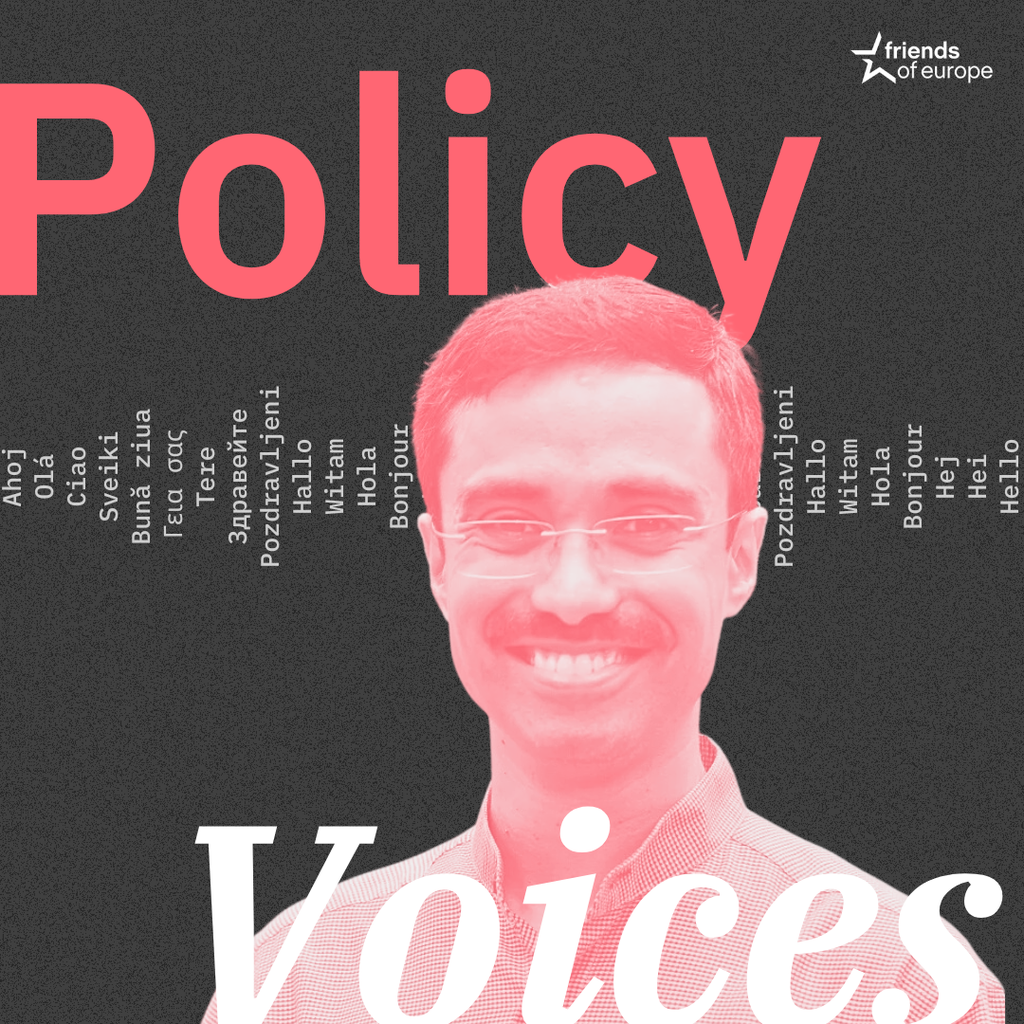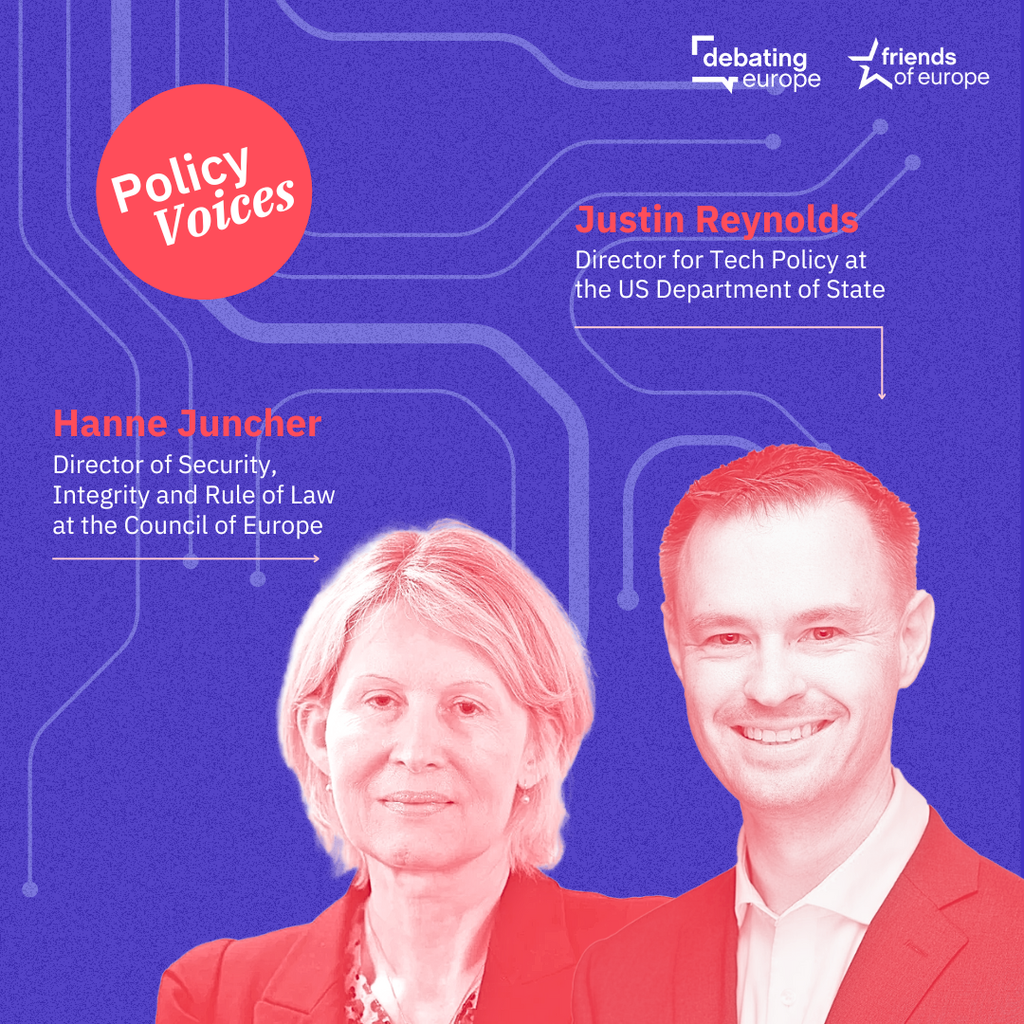A European agenda for space: resilience, security and sovereignty
Past event In person

- Area of Expertise
- Digital & Data Governance

Unemployment is the most urgent challenge facing the Euro- Mediterranean region. It was a key combustible which sparked the Arab awakening and remains dangerously present as the number one priority, especially for youth and women. It is a concern shared on both sides of the Mediterranean, a shared challenge and a common responsibility that has to be undertaken through a wider Euro-Mediterranean approach.
In the eurozone, average unemployment is more than 10% of the total working-age population, but 21.4% for youth. This is an average figure that would exponentially increase if we turned our eyes towards Italy, Greece or Spain, which leads world unemployment rates. The South and East Mediterranean countries have an average unemployment rate of 11% of the total population and 27% for youth, a rate twice as high as in other middle-income countries in Asia or Latin America. In addition to the effects that a high level of unemployment has over the economy, the active population in the MENA is in fact the lowest in the world. Only 49% of the labour force of the MENA participates in the economy (ILO), which means that considering the unemployment rate, around less than 1 out of 3 people in the region has a job.
The downward spiral
The relation between unemployment and labour market participation is in fact closer than it seems. High structural unemployment deters and demobilises potential job-seekers, particularly women as they constitute the vast majority of the inactive and unemployed population in the region. It also reduces consumption, which in turn slows down job creation. This downward spiral is especially aggressive in a region where the formal private sector is unable to face by its own means the barriers and reforms required to become the main engine of job creation.
Moreover, the public sector alone is unable to face the challenges of tomorrow: over 60% of the population of Arab Mediterranean countries is under 30 years old. If current trend continues, by 2020 the number of young people will be close to 100 million in the region, making situation that much more potentially critical.
Seize the opportunities
The scenario presents many challenges, but also many opportunities. The Union for the Mediterranean (UfM) is well aware that social stability in the region will depend to a large extent on the capacity of the economies to safeguard and create the number of jobs needed for an increasing labour force. To this effect, efforts from national governments and international co-operation have to be coordinated effectively. Co-operation and development aid should not be competitive and overlap; on the contrary it should be a constant flow of exchange, collaboration and strengthening of synergies. A significant transformation that brings sustainable growth and political stability in the region is hence needed. But such a challenge needs to be addressed from a wide scope of public and private programs with the close co-operation of international and local stakeholders. It could be led by the UfM Secretariat acting as intergovernmental, private sector and civil organizations platform and financial catalyser.
Build on Med4Jobs
Besides the bilateral agreements and aid, the EU – now holding the presidency of the Union for the Mediterranean, together with Jordan – is in support of the UfM Secretariat’s initiatives to reduce unemployment. In our concern for this matter, the Mediterranean Initiative for Jobs – Med4Jobs – was launched during the conference on “Employment and Territorial Development”, organised by the UfM in Tunis in 2013. The general goal is to create jobs by promoting and replicating a number of v private sector job-creation projects in the southern and eastern Mediterranean. It has been conceived as a cross-sectorial, project-based initiative that covers both the supply and demand side of the labor market by targeting three core issues: employability, job intermediation and business- enabling infrastructure. In terms of employability it is focused on promoting entrepreneurship and enhancing the employability of priority sections of society – women, youth – through the identification and up-scaling of successful training experiences across the region, which address the mismatch between skills and labour market needs. In terms of job intermediation it tries to improve information flows between job seekers and employers by replicating successful job-facilitation and intermediation experiences. Regarding business-enabling infrastructure, the initiative provides coaching to start-ups and SMEs through the development of business infrastructures for SMEs, such as incubators and coaching programs.
Reinforcing development
Nevertheless, unemployment, as a prior concern, has to be tackled from a comprehensive and regional approach. To this effect, the UfM’s 43 member states gave it the mandate to reinforce development in six different areas: business, civil and social affairs, energy, transport and urban development, higher education and research, water and sustainability. Under the co-presidency of the European Union and Jordan, and following the political guidance of the ministerial conferences, the Secretariat implements additional social and economic development programs based on a region-building approach and sustainability in all those areas.
All these project-based efforts and initiatives can only be achieved by connecting governments, the private sector, civil society, international and local organisations and stakeholders. As the most inclusive dialogue and consensus building platform as well as a financial catalyser, the UfM Secretariat has the capacity to bring together and mobilise these actors, contributing towards regional integration, socioeconomic development, knowledge transfer and sustainable development in a little integrated area within a complex regional context. There is therefore a need to put more efforts into working hand in hand with all actors, ensuring close coordination and reinforcing synergies with the EU in its institutional renewal phase. It is only that we can achieve our common purposes and shared goals.
Past event In person

Next event In person & livestreamed

Past event Online

Past event In person





Stay informed
We use cookies and similar technologies to adjust your preferences, analyze traffic and measure the effectiveness of our campaigns. Learn more about our privacy policy.